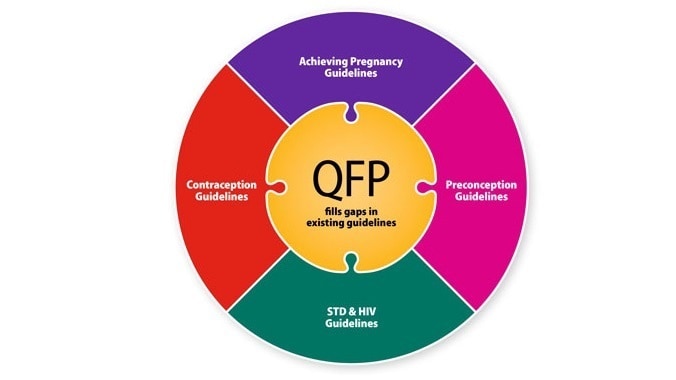At a glance
Providing Quality Family Planning Services (QFP) is a report that recommends how to provide family planning services so that people can: achieve their desired number and spacing of children, increase the chances that a baby will be born healthy, and improve their health even if they choose to not have children.
Recommendations from CDC and the U.S. Office of Population Affairs
- What services to offer in a family planning visit, including contraceptive services, pregnancy testing and counseling, helping clients achieve pregnancy, basic infertility services, preconception health services, and sexually transmitted disease services.
- How to provide these services by drawing upon existing recommendations and filling gaps where needed.
- Using the family planning visit to provide selected preventive health services, such as breast and cervical cancer screening.
Learn more about tools to help providers get the resources and support needed to implement the recommendations. For more information, visit Reproductive Health National Training Center.
QFP was developed collaboratively by CDC and the Office of Population Affairs of the U.S. Department of Health and Human Services. The recommendations are based on a review of existing clinical guidelines published by CDC, U.S. Preventive Services Task Force (USPSTF), and professional medical associations.
The Quality Family Planning (QFP) Recommendations Integrate and Fill Gaps in Other Guidelines for the Family Planning Setting

